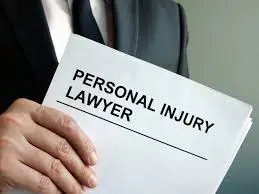How to Find a Brain Injury Attorney
Suffering from a brain injury can be a life-changing event, both for the injured person and their family. These injuries often lead to significant medical expenses, loss of income, and long-term rehabilitation. To seek fair compensation, it's essential to hire a competent brain injury attorney. But how do you find the right lawyer for your case? This guide will walk you through the steps, key considerations, and qualities to look for in a brain injury attorney.
1. Understanding Brain Injury Law
Brain injury law falls under personal injury law and deals specifically with cases where individuals have suffered a traumatic brain injury (TBI) due to someone else’s negligence. Common causes include car accidents, sports injuries, slip and falls, medical malpractice, and workplace accidents.
2. Why You Need a Specialized Attorney
Brain injuries are complex, and the effects may not be immediately visible. Only a specialized brain injury attorney will have the legal knowledge and experience necessary to handle such cases effectively. They can help:
- Determine the extent of liability
- Calculate long-term damages (including medical bills, lost wages, pain and suffering)
- Consult with medical experts to assess the injury’s full impact
- Negotiate with insurance companies
- Take the case to trial if necessary
3. Steps to Finding a Brain Injury Attorney
| Step | Description |
|---|---|
| Step 1: Research Online | Start by searching for personal injury or brain injury attorneys in your area. Look for websites, reviews, and testimonials. Make sure to check their credentials and experience. |
| Step 2: Ask for Recommendations | Seek recommendations from friends, family, or colleagues who have worked with personal injury lawyers. If you know anyone in the legal field, they may provide reliable referrals. |
| Step 3: Contact Bar Associations | State and local bar associations maintain lists of licensed attorneys. You can also inquire whether they specialize in brain injury cases. Many bar associations have referral services that can direct you to qualified attorneys. |
| Step 4: Schedule Consultations | Narrow down your list and schedule consultations with at least 3 attorneys. Most offer free consultations. Use this time to assess their experience, communication skills, and approach to handling brain injury cases. |
| Step 5: Review Track Record | Check their success rate in handling similar brain injury cases. Ask for case examples or outcomes of similar claims they’ve settled or taken to trial. |
| Step 6: Evaluate Legal Fees | Brain injury attorneys typically work on a contingency fee basis, meaning they only get paid if you win. Clarify the percentage they take and whether you’ll be responsible for other legal costs. |
| Step 7: Check Compatibility | Ensure that the attorney is someone you feel comfortable working with. Communication is key, so gauge their responsiveness, empathy, and willingness to answer your questions. |
4. Key Qualities to Look for in a Brain Injury Attorney
| Quality | Description |
|---|---|
| Experience in Brain Injury Cases | Look for an attorney with a proven track record in handling brain injury cases. They should understand the medical and legal complexities involved. |
| Strong Negotiation Skills | Since many personal injury cases settle out of court, it’s crucial that your attorney is a skilled negotiator capable of securing fair compensation. |
| Trial Experience | In cases where a settlement isn’t reached, the attorney should be prepared to take your case to trial. A strong courtroom presence is essential for this. |
| Medical Knowledge | Brain injury attorneys often work closely with medical experts to build their cases. Having a lawyer with a solid understanding of medical issues can be a huge asset. |
| Client Focus | A good attorney will prioritize the needs of their clients, offer compassionate support, and communicate regularly throughout the case. |
| Resource Availability | Brain injury cases often require hiring medical experts, investigators, and accident reconstructionists. Make sure your attorney has access to these resources. |
5. Questions to Ask During Consultation
When you meet with a brain injury attorney, it's essential to ask the right questions to gauge their suitability for your case:
- How many brain injury cases have you handled?
- What is your success rate in brain injury lawsuits?
- How long will my case take?
- Will I be working directly with you, or will my case be assigned to a different lawyer or paralegal?
- What are the legal fees, and how are they structured?
- How will you communicate updates about my case?
6. Common Mistakes to Avoid
| Mistake | Description |
|---|---|
| Choosing a Generalist Attorney | Not all personal injury attorneys specialize in brain injuries. Make sure your lawyer has the specific expertise required for your case. |
| Ignoring Reviews and Testimonials | Client feedback can offer valuable insight into an attorney’s reputation. Be sure to research online reviews before making a decision. |
| Hiring Based on Cost Alone | While legal fees are a consideration, don’t hire an attorney solely based on their rates. An experienced attorney may charge more but could secure a much larger settlement. |
| Failing to Review Contract Terms | Always review the attorney-client contract carefully, especially regarding fees, contingency percentages, and other costs. |
7. Conclusion
Finding the right brain injury attorney can make a significant difference in the outcome of your case. Thorough research, consultations, and evaluating experience are critical steps in ensuring you get the compensation you deserve. Use the resources available, ask the right questions, and take your time to find an attorney who will advocate for your rights and help you navigate the legal complexities of brain injury cases.
This guide should serve as a starting point in your search. The right attorney can ease the burden of a brain injury lawsuit and help you move forward toward recovery and justice.
Explore

Best Personal Injury Attorneys in the USA (2025)

The Importance of Hiring the Best Criminal Defense Attorney

How to Choose the Right Divorce Attorney: A Comprehensive Guide

How to Find a Good Slip and Fall Lawyer: A Comprehensive Guide

How to Find the Best SEO Agency Near You

The Best Internet Business Phone Systems: A Comprehensive Guide

Top MBA Distance Education Programs: An In-Depth Guide

The Power of Press Release Services: A Vital Tool for Business Growth
